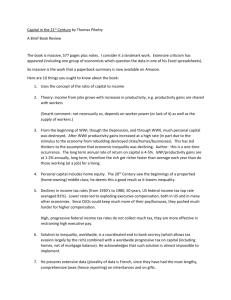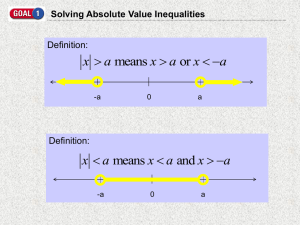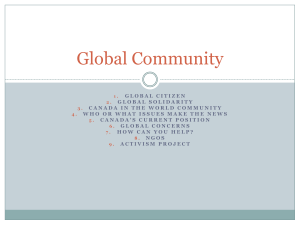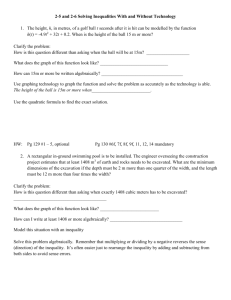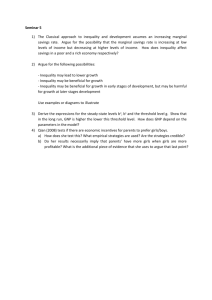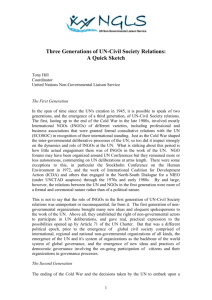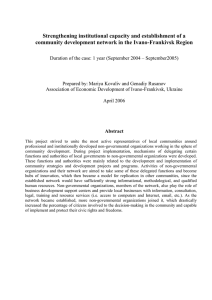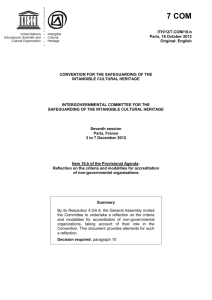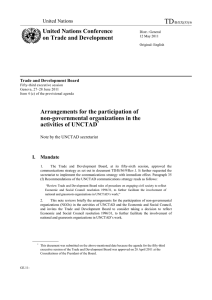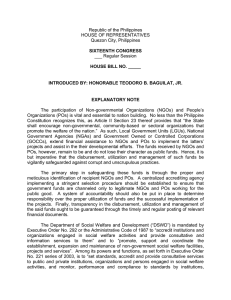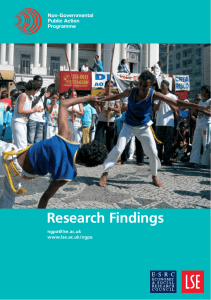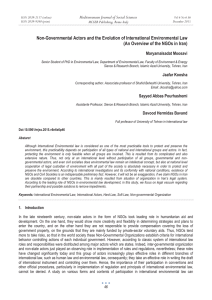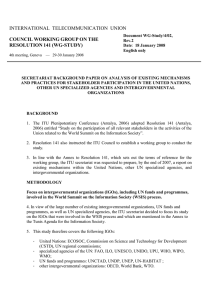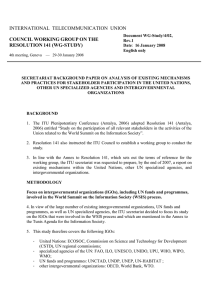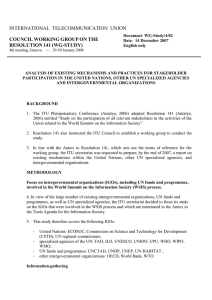EHR 1102 Introduction to Human Rights
advertisement
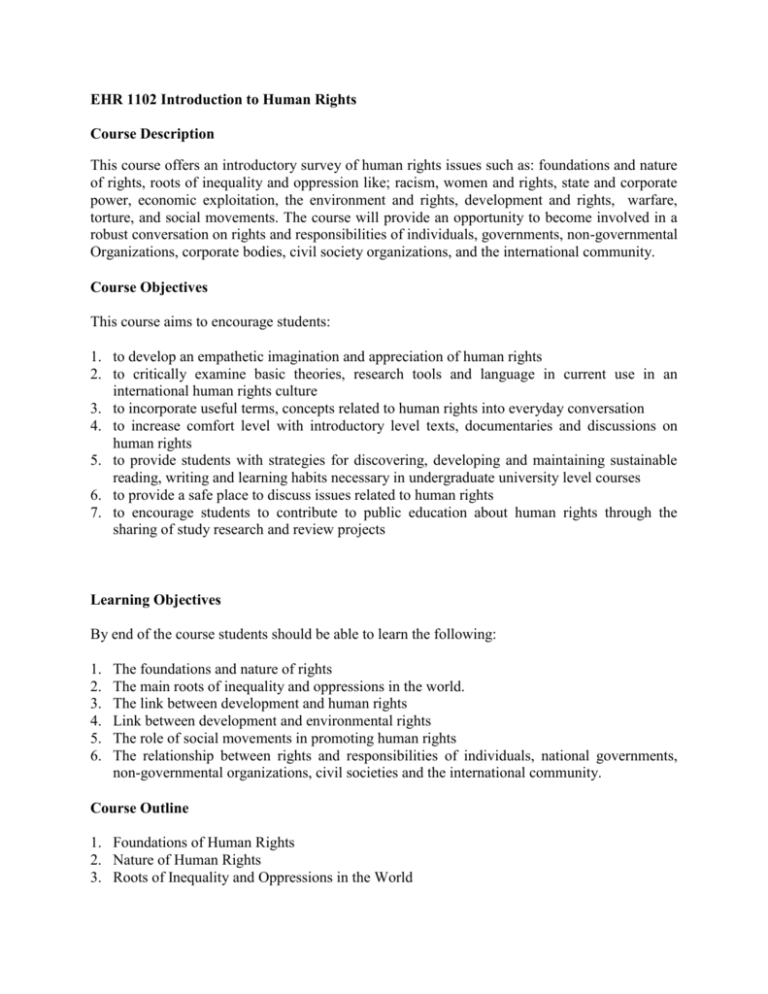
EHR 1102 Introduction to Human Rights Course Description This course offers an introductory survey of human rights issues such as: foundations and nature of rights, roots of inequality and oppression like; racism, women and rights, state and corporate power, economic exploitation, the environment and rights, development and rights, warfare, torture, and social movements. The course will provide an opportunity to become involved in a robust conversation on rights and responsibilities of individuals, governments, non-governmental Organizations, corporate bodies, civil society organizations, and the international community. Course Objectives This course aims to encourage students: 1. to develop an empathetic imagination and appreciation of human rights 2. to critically examine basic theories, research tools and language in current use in an international human rights culture 3. to incorporate useful terms, concepts related to human rights into everyday conversation 4. to increase comfort level with introductory level texts, documentaries and discussions on human rights 5. to provide students with strategies for discovering, developing and maintaining sustainable reading, writing and learning habits necessary in undergraduate university level courses 6. to provide a safe place to discuss issues related to human rights 7. to encourage students to contribute to public education about human rights through the sharing of study research and review projects Learning Objectives By end of the course students should be able to learn the following: 1. 2. 3. 4. 5. 6. The foundations and nature of rights The main roots of inequality and oppressions in the world. The link between development and human rights Link between development and environmental rights The role of social movements in promoting human rights The relationship between rights and responsibilities of individuals, national governments, non-governmental organizations, civil societies and the international community. Course Outline 1. Foundations of Human Rights 2. Nature of Human Rights 3. Roots of Inequality and Oppressions in the World 4. 5. 6. 7. Link between Development and Human Rights Link between Human rights and Environmental Rights The role of Civil Society Organizations in Promoting Human Rights Human Rights and Corresponding Responsibilities (a) (b) (c) (d) Individual Responsibilities State Responsibilities Non-Governmental Organizations’ responsibilities Responsibility of the International Community Pedagogical Methods The pedagogy is based on the 4-R’s: relevance, reciprocity, respect and responsibility. The students will learn to critically engage with human rights resources including texts, videos, works of art (literary and visual), and web resources. The course will include lectures, class discussions, web-based presentations, guest speakers and workshops. Assessment Mode Take home exercise 15% Practical exercise test 15% End of semester examination 70% Reading List 1) Steiner, H.J. & Alston, P. (2000). Civil society: Human rights NGOs and other groups. International human rights in context: Law, politics, morals. 938-964. 2) Mutua, M. (2001). Human rights international NGOs: A critical evaluation. In Welch (Ed.), NGOs and human rights: Promise and performance. 151-163. 3) Human Rights Watch. http://www.hrw.org/about/whoweare/html (who we are) and http://www.hrw.org/about/faq (frequently asked questions) 4) Tibbits, F. (2005). Transformative learning and human rights education: Taking a closer look. Intercultural Education, 16 (2). 107-114. 5) Ilkkaracan, P. & Amadao, L. E. (2005). Human rights education as a tool of grassroots organizing and social transformation: A case study from Turkey. Intercultural Education, 16 (2). 115-128.



